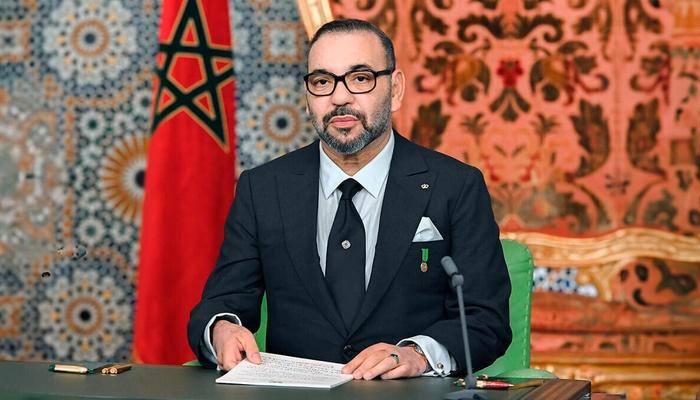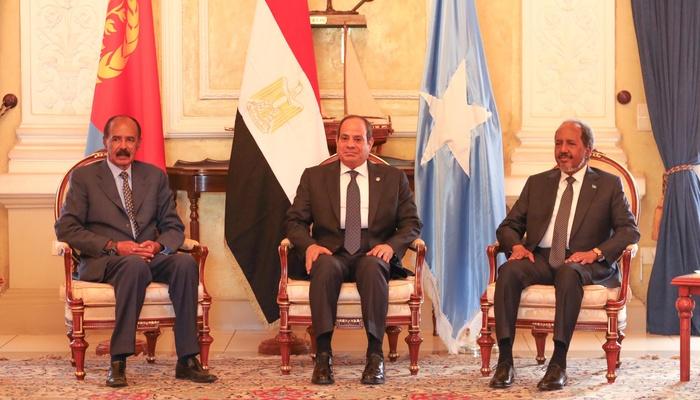The Papho Summit and The New Perspectives In The Eastern Mediterranean
The Eastern Mediterranean constitutes an evolving theatre, open to new levels of geopolitical confrontation and strategic competition that leave room for the entry of different players. If in recent years it has been mainly the littoral powers (Egypt, Israel and Turkey) to contend for direct influence and control in the Levantine Basin, in the last decade the Mediterranean has become a pole of attraction for new extra-regional actors (Gulf monarchies, Russia, China), historically distant from the maritime dynamics of the area. The latest meeting which took place in Paphos (Cyprus) on 16 April 2021 between the Foreign Ministers of Greece, Cyprus, Israel and the United Arab Emirates (UAE) clearly witness this change of pace. The four countries met for the first time in a quadrilateral summit, with the aim of deepening their bi- and multi-lateral cooperation. While the geographical position of Greece and Cyprus has always justified their interest in Mediterranean dynamics, Israel has begun to play a key role in the area since 2009, when the discovery of gas fields in the Eastern Mediterranean has made the sea zone between Cyprus, Egypt and Israel a geostrategic pole. Even more surprising is Abu Dhabi’s direct involvement in the Cyprus summit. The Arab monarchy began to look at the Mediterranean with greater interest only after 2013 (following the Arab Spring and the ousting of Mohammed Morsi in Egypt), limiting itself mostly to signing trade agreements – and sometimes defence ones – with the littoral countries before. In this scenario, it is necessary to understand which are the drivers that boost different actors to require direct influence in the Levant Sea, so as to see if their objectives go beyond mere energy supply. More precisely, it is crucial to contextualise the experiences that each player brings in relation to the foreign policy ambitions to achieve, trying to outline plausible future prospects for the area.
The Paphos summit undoubtedly highlights the willingness of Athens, Nicosia and Tel Aviv, directly involved in the Exclusive Economic Zones’ control (EEZ) in the Levantine Sea, to strengthen their cooperation to cope with Turkey, which claims greater geopolitical weight in the Mediterranean gas fields’ exploration. Until now, the anti-Turkish dialogues have been mainly held by the three abovementioned countries with Egypt, also implicated in the maritime borders’ delineation. In addition, sometimes talks also include other realities of the basin (such as Italy and France) so as to establish a framework of cooperation for more efficient exploitation and marketing of the Levantine gas. As a result, in 2019 those countries founded the Eastern Mediterranean Gas Producers Forum (EMGF), an international organisation that intentionally excludes Turkey to establish a new regional gas market, conducting the realization of submarine infrastructures that should connect the Eastern Mediterranean with continental Europe.
Looking more in detail at UAE, its involvement in the Cyprus summit certainly constitutes a novelty, becoming a turning point for regional perspectives. The country’s direct entrance in the EMGF as an observer (December 2020) – and in the Mediterranean dynamics as a whole – is surely consequential to the normalisation of ties with Israel through the 2020 Abraham Agreement. If Abu Dhabi could previously count on the support of Greece and Cyprus to hinder Ankara, its ideological and strategic rival and a competitor on various trans-regional fronts (from Libya to the Red Sea), distressed relations with Tel Aviv could now allow the Emirates to further strengthen their anti-Turkish positions and to see in Israel a possible strategic partner to collaborate within the security field. Specifically, since the Ankara government decided in 2017 to place a military base in Qatar, Abu Dhabi has perceived this action as an intrusion into the Arab Gulf’s internal affairs, feeling the need to reinforce its defence system. Moreover, although the quasi-reconciliation between the Gulf monarchies and Qatar during the Saudi al-Ula summit (January 2021) was greeted with cautious optimism by Turkey and led to an indirect thaw between Ankara and the UAE, the latter continues to view the Turkish rival with scepticism, especially in the Libyan scenario. Also, in recent years the monarchy has already signed military agreements with Greece to face Turkey, but the Emirati defence contingent is still lacking and outdated, a shortcoming that also the Greek counterpart feels. Consequently, in the framework that is taking shape, both countries can now use Israel, a middle eastern pioneer in defence technology, to modernise and reinforce their military assets. Not to mention that the normalisation with Tel Aviv allows the UAE to find a partner to collaborate with also against Tehran, another common enemy to contain.
Besides the geopolitical competition, the two countries’ synergy lies in the broader framework of energy security, a key aspect of the new Paphos strategic axis. The preliminary $1.1 billion agreement between the Emirates energy company Mubadala Petroleum and Israel’s Delek Drilling for a 22% non-operational stake in the Tamar offshore field makes evidence of this. The deal, if finalised, will permit an Emirati state-owned asset to be directly involved in extractive procedures along the Mediterranean waters, putting further obstacles at the Turkish competitor. At the same time, this new cooperation front offers economic opportunities to Abu Dhabi that go beyond the gas issue, as the ongoing Israeli negotiations for privatising the strategic port of Haifa with DP World, the Dubai-based industrial giant, witness. Furthermore, increased cooperation with Greece and Cyprus would allow UAE to strengthen its relations with the European Union, especially with countries that share concerns about Turkey (such as France) and in the Balkans, where Abu Dhabi can exploit past relations to reinforce its influence against Ankara.
Moving on to the littoral Countries, the new Emirati interlocutor can bring many advantages to the anti-Turkish cooperation framework that already exists. As pointed out previously, Israel will benefit greatly from the new arrangement, reinforcing its geopolitical weight in the area and relying on the Emirati support also in an anti-Iranian way, to contain the Lebanese proxy Hezbollah. Moreover, the re-approach with the Gulf Monarchy would be useful for Tel Aviv to re-launch some domestic economic domains, starting with tourism, as well as exploit its technological know-how to consolidate agreements that go beyond the defence sector. In addition, strengthening the partner countries’ military contingents (as evidenced by the recent €1.65 billion military capacity-building agreement with Athens) would allow Israel to reinforce its national one on the other side of the Mediterranean, using overseas logistics to conduct military exercises and thus compensating for the limited space offered by its own national borders. Looking at Greece and Cyprus, the islands could exploit the interest of various actors in finding cooperation agreements to reinvigorate their position both in the Mediterranean and in the European quadrant, also taking advantages of modernising and strengthening their defence and security systems, as mentioned above.
In this panorama, Egypt’s absence from the Paphos summit does not go unnoticed. Indeed, Egypt is a key partner for Israel, Greece and Cyprus in the dispute over the EEZ, owning 41-43% of the gas reserves located at the intersectional waters with Israel and Cyprus. This energy abundance has allowed Cairo to rediscover its geostrategic centrality, making it a pivotal player within the EMGF and making one wonder about the plausible reasons for its exclusion from the Cyprus talks.
First of all, the Egyptian absence in the summit could be due to the entry of the UAE itself. In fact, Abu Dhabi is an ally of Cairo but in a very pragmatic way, basing their relations on limited tactical convergences and only in neighbouring contexts (Libya, Sudan and the Red Sea). Consequently, this approach has led the two countries to cool their strategic relationship in the past, and now ties could be even more jeopardized because of the new role that the UAE intends to offer Israel after normalisation. Although Cairo has cooperated with Tel Aviv in the EEZ dispute so far, both countries actually aspire to become the regional hub for liquefied natural gas production, trade and distribution, bypassing Turkey. Until now, given Ankara’s assertiveness, Cairo has preferred to consider Tel Aviv as a strategic ally rather than a rival, but the Emirate’s recent propensity to bet heavily on Israel for multiple benefits (energy, defence, technology, investment) warns Egypt, which may fear being side-lined in sub-regional energy cooperation. The risk of seeing its aspiration to become the EMGF’s reference hub go up in smoke is pushing Cairo to look further afield, seeking new possibilities for regional cooperation. Evidence of this is its recent willingness to loosen relations with Turkey itself, not far from becoming a true normalisation at least limited to the Mediterranean context. In this regard, another reason that could push Cairo closer to Ankara is related to the recent renewal of the 2019 Memorandum of Understanding (MoU) signed by Turkey and Libya for the EEZ’s delimitation, which allows the Turkish government to conduct gas exploration even outside its territorial waters. Although the MoU mainly concerns Turkey and Greece, in recent months Egypt seems to have implicitly assented to the agreement, not violating the maritime boundaries demarcated by the memorandum. Moreover, the difficulties in implementing the EastMed project may also have made Cairo more willing to exploit tactical convergence with Turkey rather than partnership with EMGF countries, a position that would seriously compromise gas production for the other member states. Indeed, at the moment the largest gas liquefaction plants are in Egypt, which could use this advantage as leverage to retain strategic influence in Mediterranean waters.
Finally, Egypt’s median position sheds light on the Turkish counterpart, which risks being widely affected by the new network developing around the Levant Sea. Undoubtedly, Ankara finds itself increasingly isolated in the maritime dispute and the plausible reinvigoration of the Emirati military apparatus – with the help of Israel – could create disadvantages also in other open confrontational spaces with the Gulf monarchy, such as in the Red Sea. However, the MoU’s renewal with Libya, combined with the rapprochement with Egypt, still leaves ample manoeuvre margin for Turkey, especially since what has been discussed so far in Paphos falls within a framework of mostly bilateral cooperation, where individual states have agreed for the achievement of individual and National-led objectives. Furthermore, also the recent reopening of the Northern Cyprus dossier is in favour of the Turkish Blue Homeland strategy. At the end of March, UN representatives resumed talks for the reconciliation of the Cyprus Island, divided for almost fifty years between a southern Greek Cypriot state and a northern Turkish Cypriot one and, for the first time in decades, the northern side put forward the proposal to recognise the creation of two sovereign states, a solution that would allow Ankara to have explorations in Cypriot waters, hitherto considered a violation of international law, recognised as legitimate.
In conclusion, the Paphos talks make it clear that the parties want to find channels of cooperation that go well beyond the mere supply of energy, ranging from the defence sector to technology or infrastructure. However, the first steps taken so far show how the individual countries are strategically exploiting the new fronts of collaboration to achieve their own foreign policy objectives, without yet outlining a comprehensive vision to be pursued in the Mediterranean basin. Undoubtedly, the success of the first April meeting suggests a continuity in the dialogues, which could lead to the concretisation of an all-encompassing energy and security plan, in an anti-Turkish way. However, in a short-to-medium term perspective, the ongoing dynamics still do not allow the actors involved in Cyprus, as well as all EMGF members, to contain the Turkish pressure in the Mediterranean Basin, leaving the current status quo as regards the exploitation of gas unchanged. Unless the new convergence taking place between Turkey and Egypt pushes Ankara to reshape its aggressive attitude and try to dialogue with the other regional powers, exploiting the climate of détente that seems to be recently emerging in the Mediterranean dynamics.









